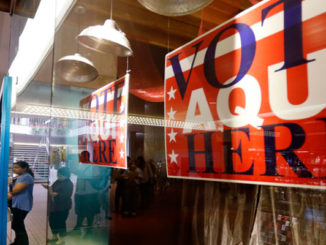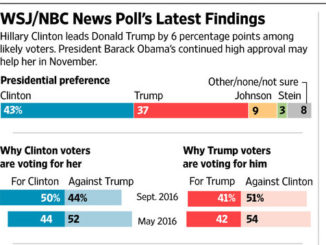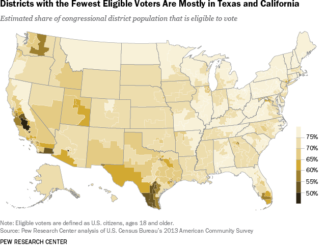
by Alex Gonzalez
The new report by the College Republican National Committee (CRNC) titled How GOP Lost Young Voters recommends that the GOP puts more focus on young voters since these voters reflect the new demographics in the nation and their vote will affect the dynamics of balance of power in states legislatures, the U.S. Senate and the White House in the coming years. This suggestion by CRNC is also a clear example of the Republican conundrum in Texas: while keeping the senior vote active, how does the GOP lures Latinos and young voters to prevent them from becoming liberal affluent college-educated Americans in their 30s?
As it was the case over the previous decade in Texas, the Latino population gain continues to be the major drive of Texas’ growth since 2010. As a result, Texas is home to the youngest Latino population in the nation. But population growth does not mean an increase of the Latino vote since young voters traditionally have a low turnout. For example, in Texas a vote by a 75-years old senior is worth 3 times more than that of 20-years old since only 25.4% of all eligible 18-24 years old voted in 2012, whereas 74% of 64-plus seniors voted in Texas. Thus, seniors older than 65, are 3 times more likely to vote than young person ages 18-24.
So it makes sense for Republicans in Texas to focus on making sure that seniors keep voting Republican since they outperform young voters 3 to 1 and they are a big share of the base in the state. But this is temporary containment strategy for the GOP since it does not replenish the shrinking senior base with young new voter from Latino communities. Also, what will happens when the 18-24 voter turns into the 30+ voter?
Since most young Latinos tend to be first generation low-income, the Republican argument is–as it the case constantly made by Libertarians at the Texas Public Policy Foundation (TPPF)–that high-income fixes everything. As Latinos become more middle and upper-income Texans, they will become more conservatives. However, in politics, there is a contradiction with the notion that income alone will bring Latinos to Republican side. And Arthur Brooks from the AEI writes a lot about this topic.
First, most affluent college- educated “white” Americans have voted for Obama 3 to 1 in the last two elections. So the idea the high-income alone leads to Republican is just hypothesis. Also, in the last four years, more “blue-collar” whites are coming to the GOP, and conservatives loved it. As a result, while more affluent college-educated Americans are becoming liberals, in part due to social issues, Republicans are luring the “blue-collar white” base that voted for Hillary Clinton in the primaries of 2008; and at the same time, it is ruling out the Latino and young vote.
In addition, there is solid correlation between college education and voter turnout. Voters with college education and high-income have 50% higher turnout than those with no college degrees, but they vote democrat. And Texas is not immune to this trend.
For instance, If you look at graph bellow, you can see that in 2012, the highest turnout counties like Harris, Travis and Dallas are the Democrat strong holds. But they are also the wealthiest areas where the most “educated” Texas population resides; you can see the affluent suburbs like Fort Bend and Tarrant county trailing in second place on voter turnout. Thus, income alone is not a solid indicator for Republican affiliation in Texas since affluent college educated liberal “whites” control most of big metro areas.
Consequently, as Latinos become more college-educated and successful business people, and thus, more active in politics, they may join the liberal “white” elites in the metro areas, as opposed to what Republican anticipates: let’s wait for Latinos to become affluent voters so they can be conservatives.
In other words, while the Republicans party awaits for young Latino voters to move over the 34-49 age category since currently only 25 percent of 18-to 24 vote, the reality is Latinos college-educated middle and upper-income Latino voters may turn out to be wasted time. Latinos may become just like the majority of “white” college-educated liberals in the big metro areas. So perhaps the Republican Party in Texas is waiting for a ghost while it focuses mainly in keeping the seniors voting in Texas.
Furthermore, there is no data suggesting that once a Latino become democrats in his/her 20s college-years later become affluent–as a business person or professional–their voter will shift to Republican in their 30s. There is presumption that they will be inclined to become fiscally conservative, which they will since they will want to protect their assets, but it does not mean they will vote Republican.
In the 1980s we had the Reagan Democrats made of catholic blue-collar “ethic white” who became Republican because of social issues like “bussing.” So you can get poor “ethnic whites” to vote Republican on social issues. Moreover, the national trends shows that more “blue-collar” whites are becoming the dominant bloc of Republican vote in the Texas and across the south. Thus, if the GOP waits for Latinos to turn 30 and affluent, they might have waited for too long to start early outreach programs in Latino Communities and they will have to resort to more blue-collar whites over educate Latinos. Ron Brownstein for the National Journal points out that “Republicans run best among men, married voters, and people without advanced education. But Democrats do better among women, single voters,, and those with more education.” the Cook Political Report also noted that:
“Ronald Reagan in 1984 won 82 of the 100 counties with the highest proportion of college graduates. But Democrats have taken at least half of those counties in every election since 1992; Obama captured 78 of them.”
Every available data on education and business indicates that Latinos move into to middle–class by the second generation through business-creation, entrepreneurial motivation, or college education just like “whites” in the metro areas of Dallas, Austin, and Houston. For example, “the 2012 purchasing power of Latinos in Texas totaled $216.2 billion—an increase of 560% since 1990. Asian buying power totaled $48.8 billion —an increase of 969% since 1990.” Therefore, income will not be problem in the near future for Latinos as much a political problem for the GOP in the state since the state turnout has an overall dismal “Anglo” turnout, 51%, and a shrinking senior base.
Overall Texas scores poorly in civic participation since only 1/3 of Voting Age Population (VAP) votes, or 51% turnout. This dismal voter turnout it also even worse among Latinos who had a 39% VAP turnout in 2012. However, since the Latino VAP has an exponential growth of 54% each year, while the Anglo has VAP increase of only 17% each year, Latinos voters eventually will catch up with senior vote as more Latinos become 30 plus, college- educated and middle and upper- income with a more civic attitude that leads to voting . See the graph below.
For example, the Latino VAP in Texas increased by 330,661 in 2011-2012, it is broadly expected to follow the same pattern. Hispanics and other non-Anglos also are driving the state’s growth (non-Anglos made up 83.4% of Texas’ citizen voting age population gain between 2010 and 2011).
As the CRNC argues in the report, younger Americans are voting democrats because there is no message to them, not because of low-income. And this is similar in Texas regarding young Latinos.
Thus, as the CRNC underlines, is not income but rather a message problem between young people, Latinos and the GOP. The Chairman of the RNC, Reince Priebus, praised the report from young Republicans as a “great” step toward strengthening the GOP’s standing with the new demographic. Therefore, if the Republican Party wants to wait for Latinos to become a middle-class and college educated bloc of voters, it may be too late. Latinos will become affluent college-educated, but they may become just like the white liberal middle-class in Austin, Dallas and Houston because there was no message from the GOP.
So income is not everything in politics, and perhaps, Just like conservatives embraced white blue-collar in 2011-12, conservatives need to invite the blue-collar and young Latino class of voters to the GOP in Texas, if they want replenish the shrinking senior base of the Party, before it is too late.
Alex Gonzalez is a political Analyst and Political Director for Latinos Ready To Vote. Comments to [email protected] or @AlexGonzTXCA



